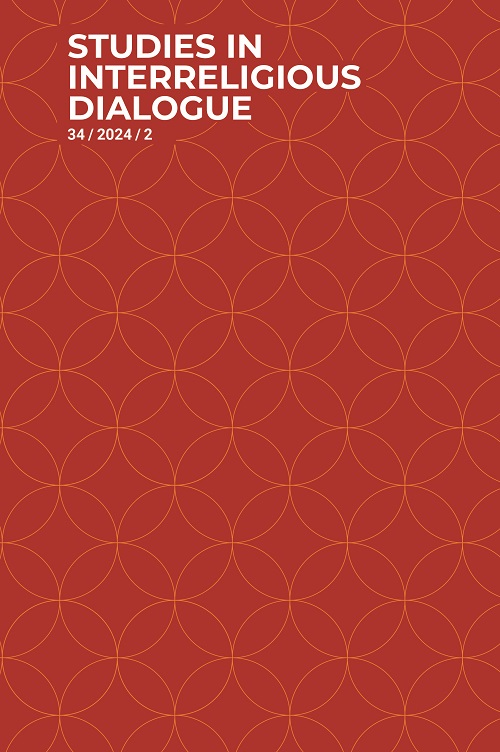 previous article in this issue previous article in this issue | next article in this issue  |

Preview first page |
Document Details : Title: Interreligious Dialogue and the Debate between Universalism and Particularism Subtitle: Searching for a Way out of the Deadlock Author(s): MOYAERT, Marianne Journal: Studies in Interreligious Dialogue Volume: 15 Issue: 1 Date: 2005 Pages: 35-51 DOI: 10.2143/SID.15.1.583340 Abstract : The inability to deal with the contemporary situation of pluralisation and the subsequent relativisation of one’s own identity leads to societal conflict. Religious pluralism confronts us with the tension between openness towards otherness and the right to identity. What is religious identity and its relation to alterity? Contemporary theology includes two conflicting answers the question of this relation. One is pluralism, which holds that all religions are culturally and historically determined interpretations of one common ground. The other is particularism which argues that the former view does not do sufficient justice to the specificity and uniqueness of different religious traditions. Both views lead to exclusion in that recognizes the alterity of the other. In this article we propose interreligious dialogue as an alternative model that does succeed in bringing identity and alterity together. Interreligious dialogue rests on a narrative concept of identity. The otherness of the other points us to the otherness of our own faith narrative. The inability to deal with the alterity of the other is a reflection of the discomfort one feels with respect to otherness in one’s own identity. Interreligious dialogue is intended to teach one to deal with the alterity of the other of and of oneself. |
 |


